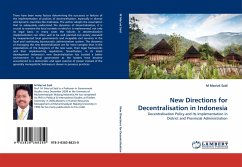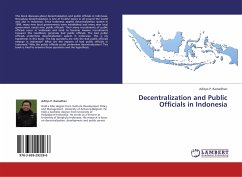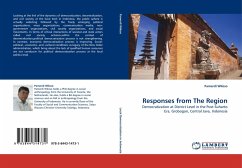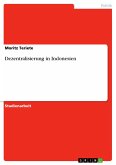There have been many factors determining the successes or failures of the implementation of policies of decentralisation, especially in diverse and dynamic countries like Indonesia. The author adopts the assumption that to adequately understand the dynamics of decentralization, it is crucial to examine the local contexts in which it is implemented, not only its legal basis. In many cases the failures in decentralisation implementation can often said to be well planned but poorly executed by inexperienced local governments and incapable civil servants in the local and continuing bureaucratic administration system. The dynamics of managing the new decentralisation are far more complex than in the expectations of the designers of the new Laws, their legal frameworks and their implementing regulations. Nevertheless, in its latest development Indonesia's new decentralisation has created a better environment in local government as the leaders have become accustomed to a democratic and open exercise of power instead of the generally monopolistic behaviours shown in previous practices.
Bitte wählen Sie Ihr Anliegen aus.
Rechnungen
Retourenschein anfordern
Bestellstatus
Storno








